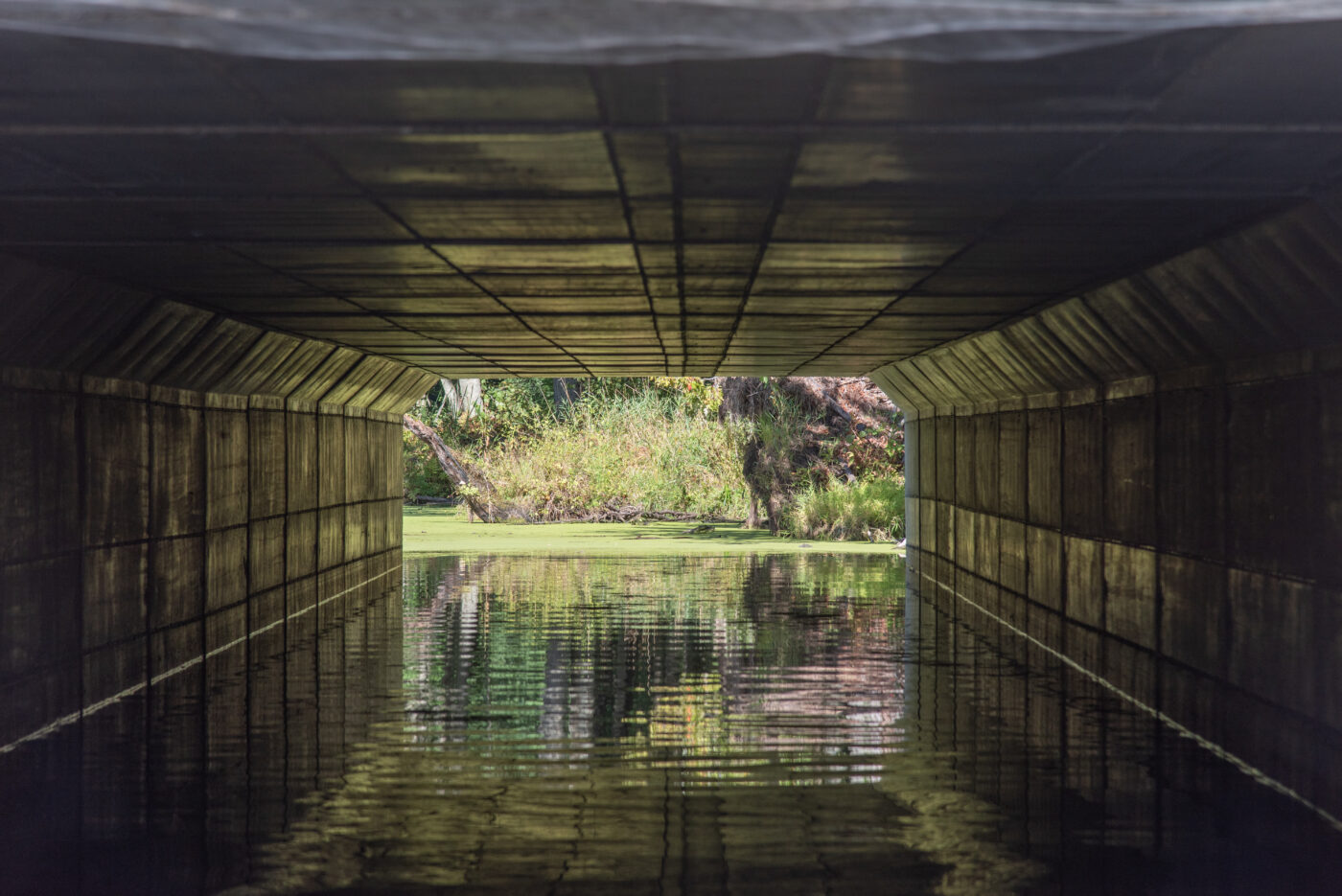With the Summer in full swing, many reptiles are mating and nesting near lakes, rivers, and wetlands—which means that the roads adjacent to these areas are an even more perilous place than usual.
When roads are built beside or bisecting natural areas, wildlife must either cross them, or risk remaining stuck on one side; which can limit their food sources, cause population decline through over-competition, and reduce genetic diversity. Crossing them, however, often proves fatal—especially for reptiles. Because reptiles are slow moving and often nest near roadsides (as the gravelly sediment makes attractive nesting material), reptiles are particularly vulnerable to roads which cut through wetlands. Turtle populations are especially impacted by roads, as roads reduce the already small percentage of hatchlings who make it to adulthood. Among adult turtles, premature deaths are also uncommon; but roads shift this balance, causing more adult deaths. Both of these factors cause an imbalance which could spell a grim future for turtle populations if changes aren’t made.
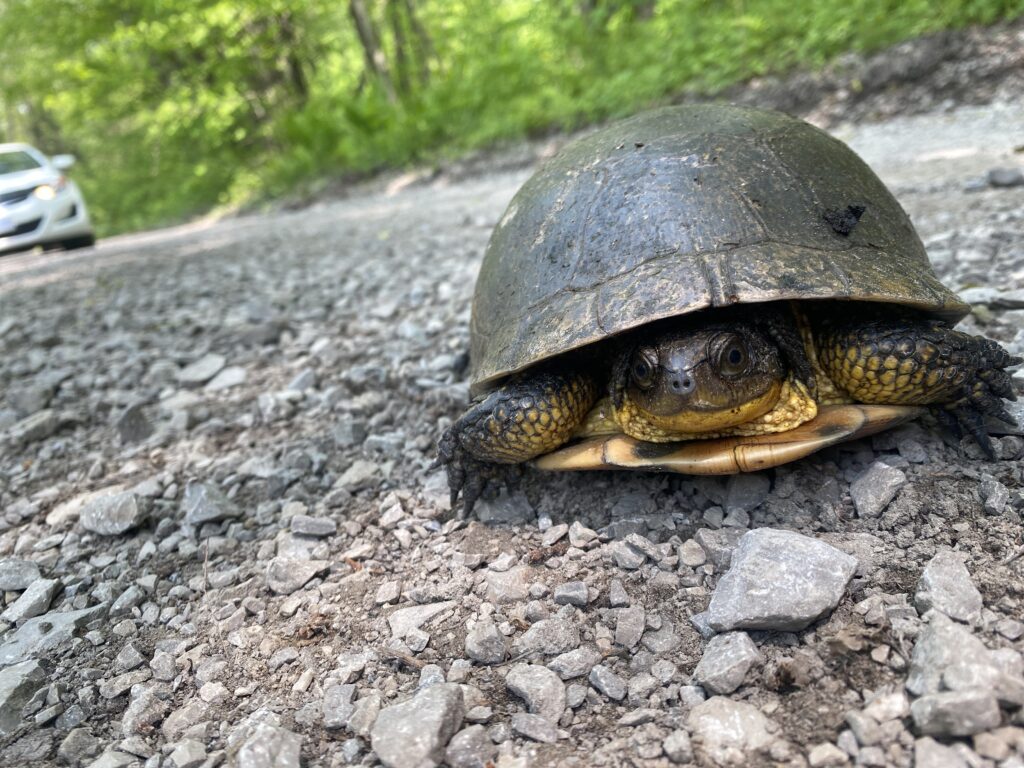
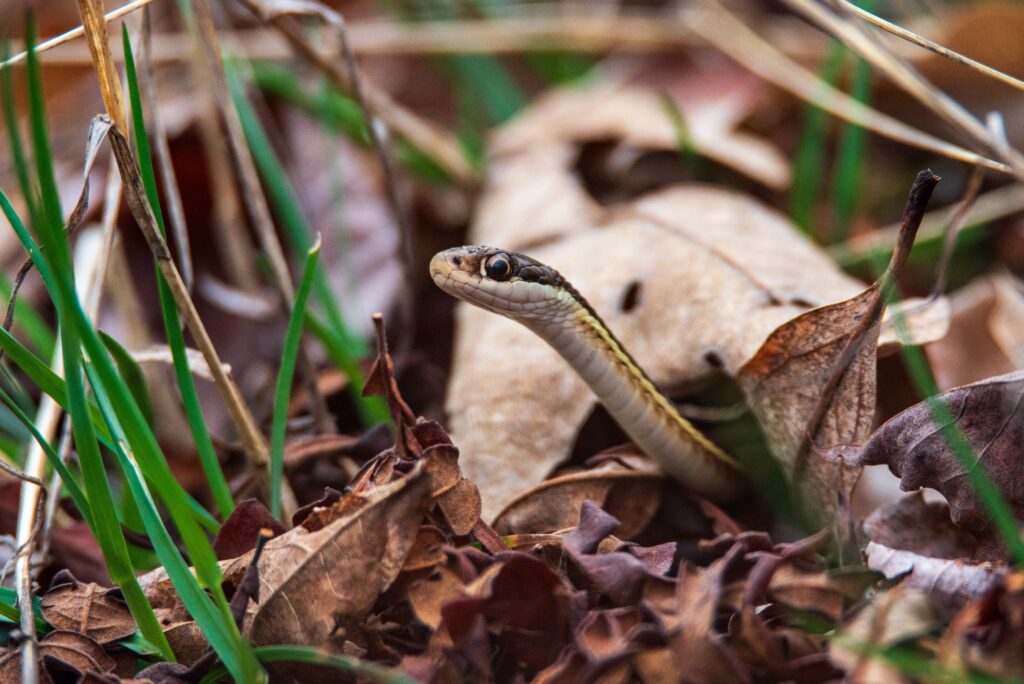
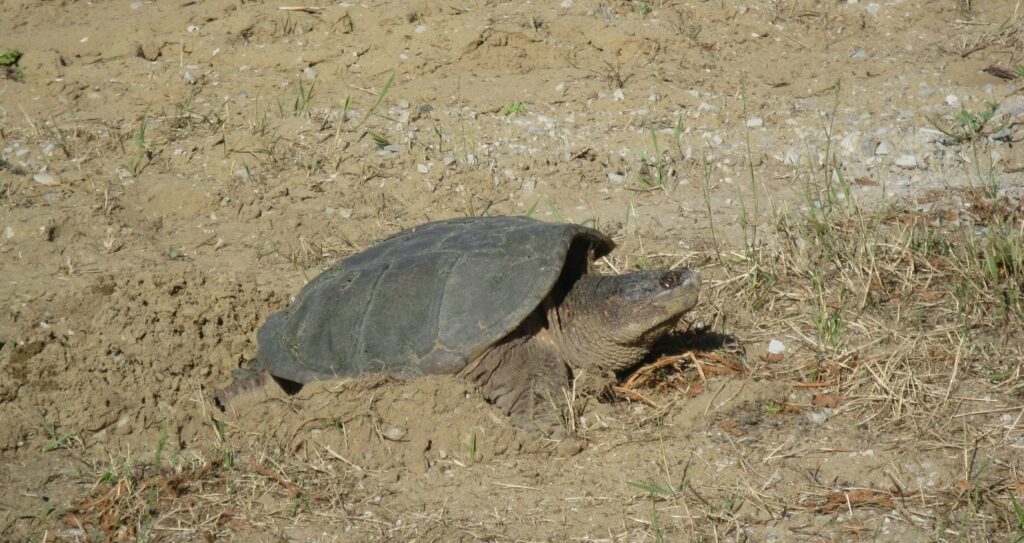
There are solutions to this issue, however; and one of them is currently being implemented on Monck road, which lies adjacent to a wetland nature reserve protected by the Couchiching Conservancy since 2019. Whitney Wetland is home to a large variety of turtles, amphibians, mammals, and other species, and is a vital connection point within the Black River Wildlands region. On a sunny June afternoon, Couchiching Conservancy staff and volunteers can be found lending a hand to the excavation of a wildlife-safe fenceline, which will channel animals like reptiles into the existing culvert which underpasses Monck Road.
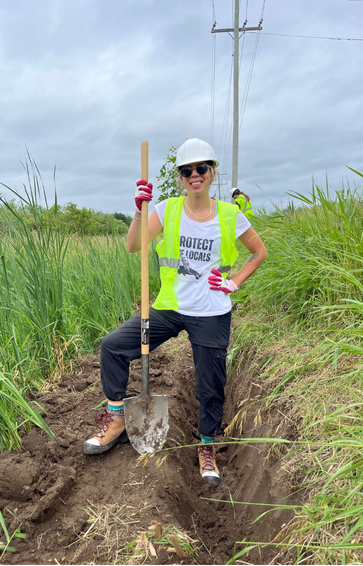
This type of solution to the issue of wildlife on roads is called an Ecopassage, or a route wildlife can take to avoid roads. Common designs for ecopassages include naturalized bridges that overpass roads, or culverts like the one at Whitney Wetland, which pass beneath them. One issue with the latter, however, is that animals tend to avoid unnatural structures; particularly those devoid of light and dry ground. That’s why staff have been working hard all Summer to add fencing to encourage wildlife to use the culvert, and will soon be working to create ledges within the culvert itself for animals who prefer to cross on dry land.
The creation of ecopassages is becoming more common throughout Ontario and Canada to reduce the issues of habitat fragmentation and road mortality, and the Whitney Wetland Ecopassage is an important step towards these goals in the Black River region. You can stay up to date about the progress of this ecopassage on our website, or by following us on social media!
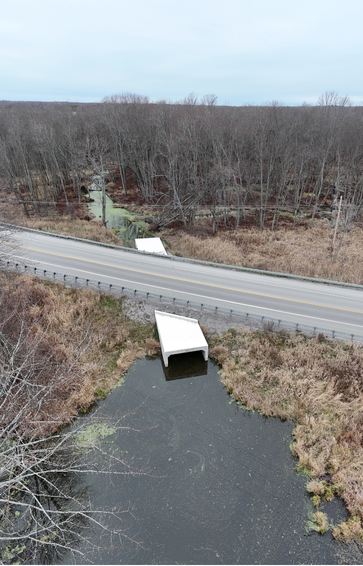
Watch our full video below to learn more about the Eco-passage at Whitney Wetland, and see staff in action!
Article by: Izzy McEwen, Community Engagement Ambassador

